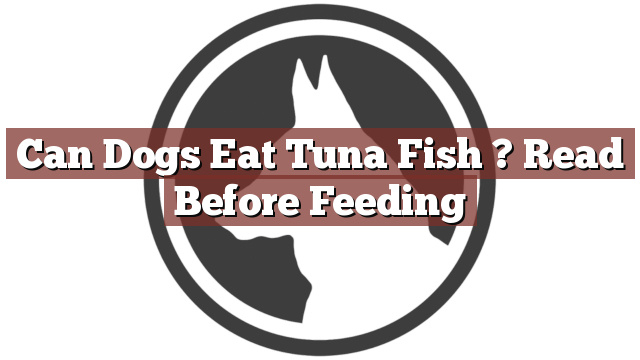Understanding Your Dog’s Dietary Needs
As a responsible dog owner, it is important to have a good understanding of your furry friend’s dietary needs. Dogs are omnivores, which means their bodies are designed to eat a combination of animal and plant-based foods. While their primary source of nutrition should come from a balanced dog food diet, occasional treats and additions to their diet can be a part of a healthy lifestyle. However, it is crucial to be aware of what foods are safe for dogs to consume and which ones should be avoided.
Can Dogs Eat Tuna Fish? Read Before Feeding
Can dogs eat tuna fish? This is a common question that many dog owners ask. The answer is yes, but with certain precautions. Tuna fish can provide several health benefits to dogs, including being a good source of lean protein, omega-3 fatty acids, and various vitamins and minerals. However, it is important to note that not all types of tuna are safe for dogs. Canned tuna in water is the best option, as long as it is plain and does not contain any added salt, seasonings, or oils. It is advisable to consult your veterinarian before introducing tuna fish into your dog’s diet, especially if they have any underlying health conditions or dietary restrictions.
Pros and Cons of Feeding Tuna Fish to Your Dog
Feeding tuna fish to your dog can have both pros and cons. On the positive side, tuna is an excellent source of protein, which is essential for dogs’ muscle development and overall health. Additionally, it contains omega-3 fatty acids, which can help support a healthy coat, reduce inflammation, and boost the immune system. Tuna fish also provides important vitamins and minerals like vitamin D, vitamin B12, selenium, and potassium.
However, there are also some potential drawbacks to consider. Tuna fish can contain high levels of mercury, which can be harmful to dogs if consumed in large amounts. Additionally, the oils present in tuna can lead to digestive issues such as diarrhea or an upset stomach. It is important to feed tuna fish to your dog in moderation and as an occasional treat rather than a regular part of their diet.
In Conclusion: Weighing the Risks and Benefits
In conclusion, while dogs can eat tuna fish, it should be done in moderation and with certain precautions. Opting for plain, canned tuna in water without added salt or oils is the safest choice. Before introducing tuna fish into your dog’s diet, it is recommended to consult your veterinarian to ensure it aligns with their specific nutritional needs. Remember that a balanced and complete dog food diet should always be the main source of nutrition for your furry friend. By being mindful of your dog’s dietary needs and making informed choices, you can contribute to their overall health and well-being.
Thank you for taking the time to read through our exploration of [page_title]. As every dog lover knows, our furry friends have unique dietary needs and responses, often varying from one canine to another. This is why it's paramount to approach any changes in their diet with caution and knowledge.
Before introducing any new treats or making alterations to your dog's diet based on our insights, it's crucial to consult with a veterinarian about [page_title]. Their expertise ensures that the choices you make are well-suited to your particular pet's health and well-being.
Even seemingly harmless foods can sometimes lead to allergic reactions or digestive issues, which is why monitoring your dog after introducing any new food item is essential.
The content provided here on [page_title] is crafted with care, thorough research, and a genuine love for dogs. Nevertheless, it serves as a general guideline and should not be considered a substitute for professional veterinary advice.
Always prioritize the expert insights of your veterinarian, and remember that the health and happiness of your furry companion come first.
May your journey with your pet continue to be filled with joy, love, and safe culinary adventures. Happy reading, and even happier snacking for your canine friend!

